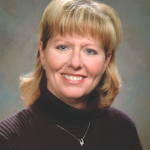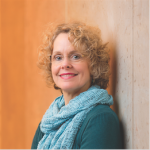
When I graduated from college, I started working in [Baltimore] Mayor Donald Shaefer’s office as one of the aides, and I was there for four-and-a-half years. The city and the state worked out a plan and got the state and city’s financial commitment to build a convention center in downtown Baltimore. That was in the mid-’70s. There was originally a study to build a downtown stadium and that fell through. But out of all of the research that was done by the consultants at the time, they said a convention center might be a good thing to build instead.
We had a small convention and visitors bureau, but we only had three hotels, and our arena — which was called the Civic Center at the time — was more or less the convention center in the dark ages of the convention business. The mayor had asked one of his senior executive cabinet members to try to put together a team that would start working on building business to come to Baltimore. I was asked by Bob Hillman, who was the city’s labor commissioner at the time, and who was putting this together, to help him move the offices of the existing convention and visitors bureau and switch them over to a different area.
The two of us sat in a room in a high-rise and pretended like we were the convention and visitors bureau, fielding calls and the interest of folks who wanted to come to Baltimore or look at Baltimore for their convention. About a year later, they hired a team under private management, which was headed by Wayne Chappell, our first convention bureau director, and Jim Smither, our first convention center director. They asked me, “Do you want to be on the bureau side or the center side?” I’m better at logistics, so I went to the center side and became an event coordinator, and that’s how I started my career in the convention business.
There weren’t many women in the field, and it still is a man’s network on the management side. But I had a lot of support here, and what I tried to do was study what was making the guys so successful, or the kinds of things that they brought to the table, and figure out how I could learn from them and put it into my personality and build my confidence on the management side. I never planned on getting into management, but because I was in from the ground floor with the convention center here, I was able to participate in all the aspects of the workings of the convention center. As an event coordinator, I was here watching how catering worked, how the engineering side worked, and I tried to soak all the information in and understand the components of the whole event, rather than just handing it off to someone else.
When the city took the convention center back over from private management [in the mid-’80s] and Tom Mobley became our director, he didn’t have a clue as to what we did. But I was made the assistant director, and it turned out we were a really good team. We kid about it now, but I’m the one who trained him. I was strong in convention services, he was strong in the nuts and bolts, and we took advantage of each other’s strengths and learned from each other. So then when he moved on, that gave me the window of opportunity to move into that position [in 1986].
I found out later that I was the first woman who was appointed to a position of a national convention center. It doesn’t mean there were no other women working in the convention business, but for a national major convention center, I was the first. I didn’t realize the magnitude. I was a hard worker. I felt I earned it. I didn’t look at it as “Oh, I’m a woman in this position.” I just decided that I earned the opportunity to manage a major facility and now it was my turn to take credits and accolades, depending on what the situation was, and to build a team that would provide the standard of service that I was expecting.
Because I came from the customer-service side, and not the nuts-and-bolts side, my focus was on a customer’s experience. I was trained by Mayor Schaefer to say, “Don’t give me the problem, give me the solution,” and that’s what I kept telling my staff. You can complain all you want, but that’s not going to get us to a successful event service or help us become a premier destination. We want people to have a good experience when they get here, so that was what I was focusing on, and apparently that was something that was a little different. My focus was building a team that had a can-do attitude.
I’m from Baltimore and I grew up here, and to look back at where we were or were not — we really were not on the map as a convention city — to where we are today, I’m very proud of the fact that I had something to do with that. Not all by myself, but I was at the beginning stages of our growth in the convention industry. I remember when Harborplace didn’t even exist and it was a big deal to have an aquarium. You put all those pieces together and you look back to say, “I remember when it wasn’t there, and now look where we’ve come.” And perhaps I played some role in my piece of the puzzle to advance us to being a serious contender in the convention world. I’m very proud of that.

